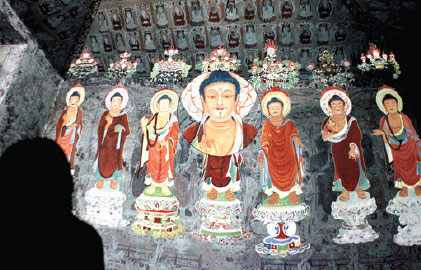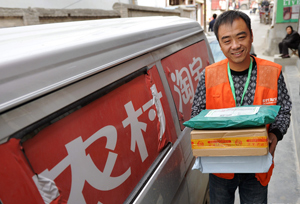News
Fewer visitors proposed for caves
Updated: 2016-03-14By Cao Yin ( China Daily )
Protection of cultural heritage, especially the Mogao Grottoes, has been set as a top priority in the development of tourism in Northwest China's Gansu province, a deputy to the country's top legislature said.
Reducing visitation hours or limiting the days the heritage site is open are two ways to protect the caves, which house a remarkable collection of Buddhist sculptures and frescoes in Dunhuang city, Lian Ji, president of the Chinese National Academy of Arts, said during meetings of China's legislature and the political advisory body.
"The move doesn't mean visitors will not see the sculptures," said Lian, also a lawmaker. "We've built a venue with high-tech devices, where people can also enjoy the fabulous heritage. ... We have taken photos with high-definition cameras of more than 10 caves in the Mogao Grottoes. Visitors will feel like they are in the real caves."
The site also provides information about the sculptures and has better light to enjoy the art treasures, he said.
Lian highlighted the protection of the World Cultural Heritage site, saying that it is critical in promoting tourism in Dunhuang, which will hold a global cultural exhibition in September under China's Belt and Road Initiative.
In January, some deputies to the provincial people's congress urged improved legislation for the protection of the history and culture of Dunhuang, which was named a national historical and cultural city in 1986 by the State Council. Zhan Shunzhou, top official of the city, said at the time that the ecology and environment in Dunhuang have been compromised over the past few years by a rapidly increasing number of tourists.
Last year, tourists made more than 6.6 million visits, and some nearby attractions, including motorcycle rally racing, have also challenged the region's ecology, Zhan said.
Su Zhou contributed to this story.
caoyin@chinadaily.com.cn
|
The art of Mogao Grottoes was displayed with 3D technology during the 9th Summer Davos Forum in Dalian, Liaoning province, in September 2015. Wang Zhuangfei / China Daily |



